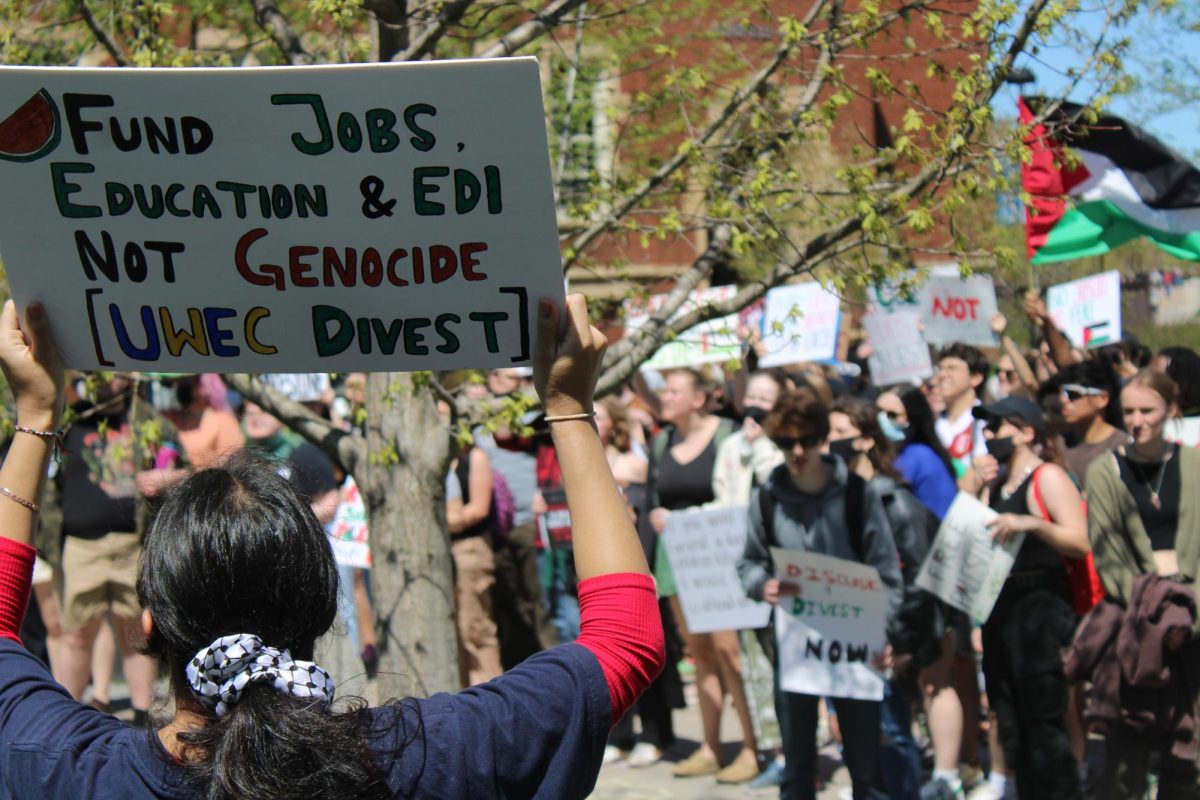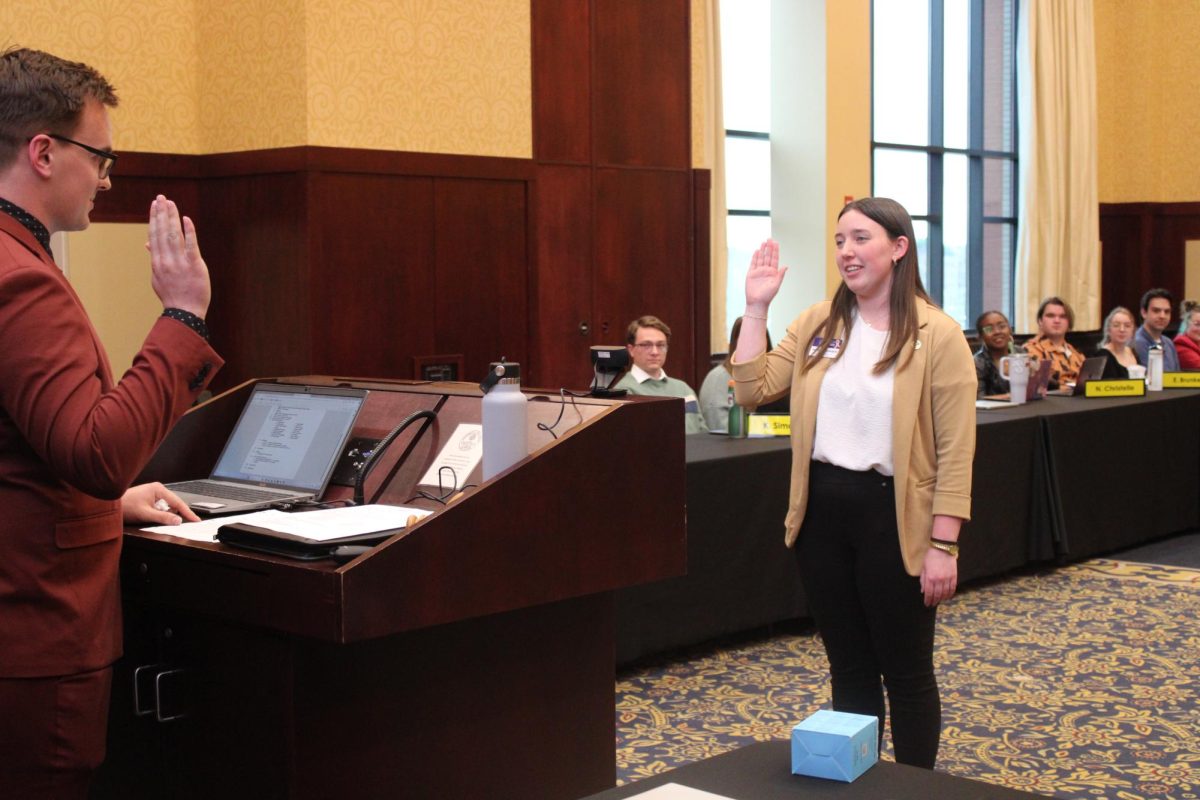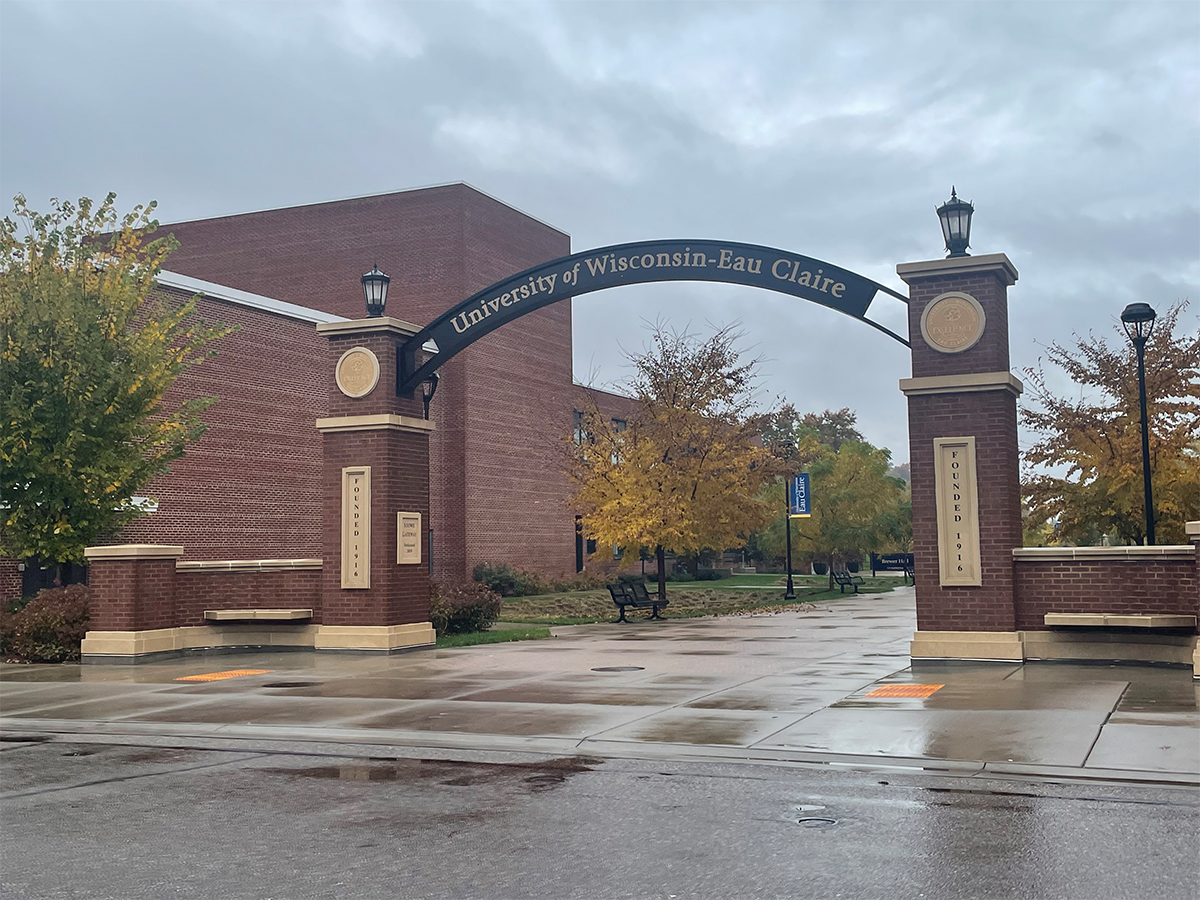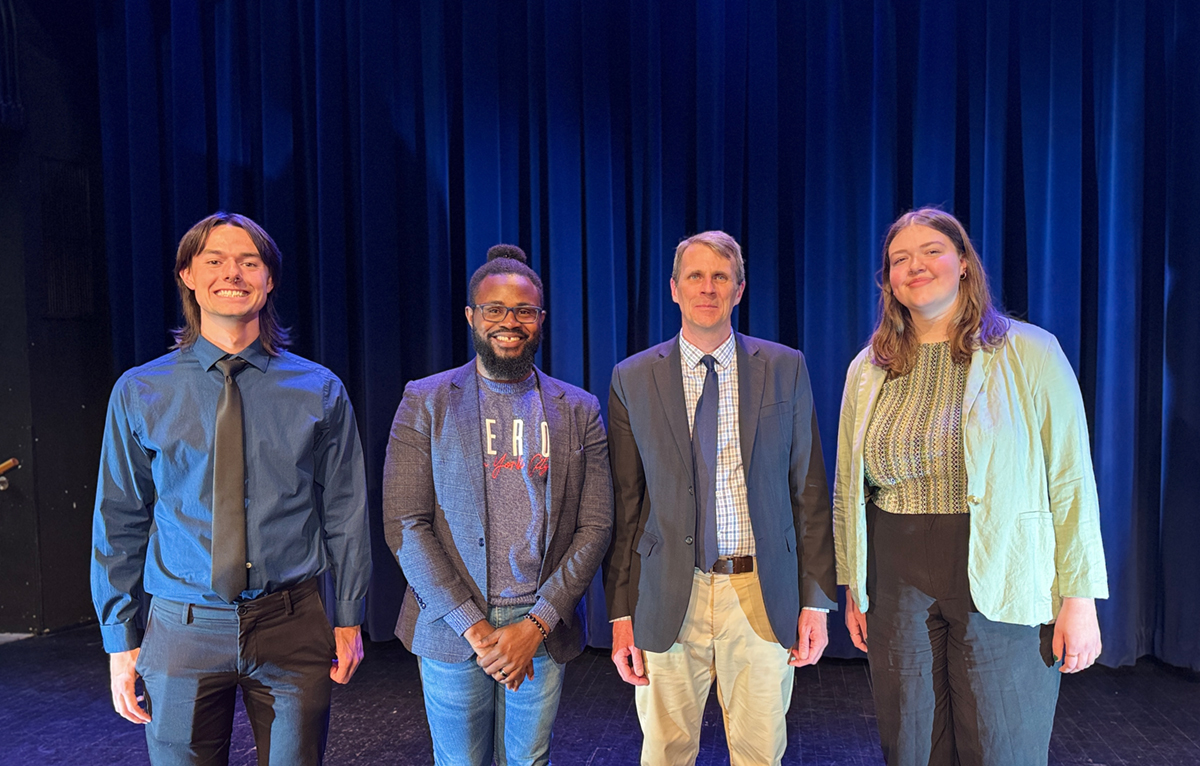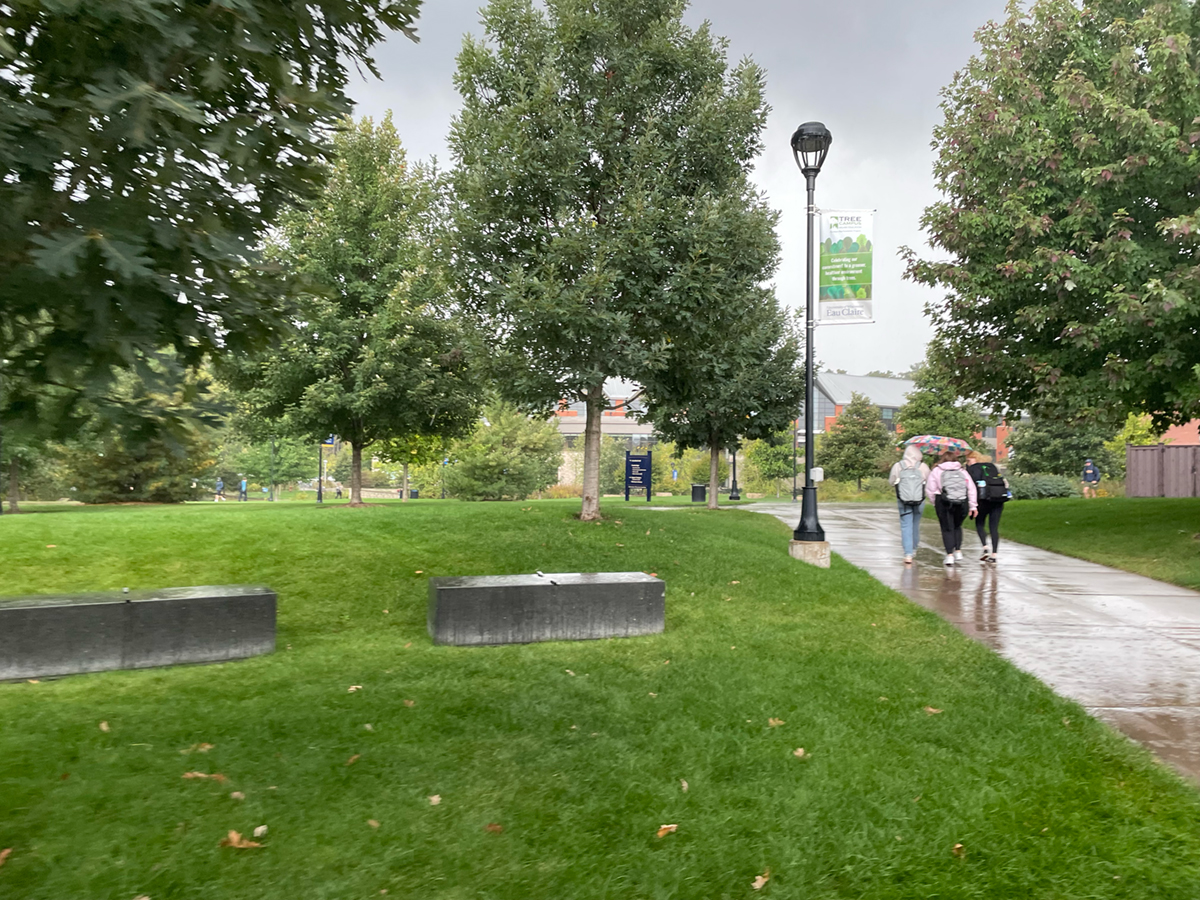Out of the whole spectrum of political careers, it’s the behind-the-scenes work of campaigns that entices sophomore Saskia Harak.
The UW-Eau Claire student senator worked as an intern this summer for the campaign to re-elect Sen. Paul Wellstone, D-Minn.
Harak, 18, a political science major who serves as Student Senate’s director of intergovernmental affairs, made a lot of phone calls and handed out literature at parades and fairs in the Minneapolis area for the senator.
While the results of her and others’ efforts won’t be seen until the November elections, Harak proved her niche for campaign work early in the spring semester in co-organizing Senate’s campus postcard movement to lobby legislators to tie increases in tuition with equal raises in financial aid.
The movement, which was part of a statewide UW campus effort, earned Harak and Senate President Sarah Schuh the United Council’s Grassroots Organizers of the Year award at the group’s general assembly at UW-Fox Valley in Menasha.
Eau Claire’s campaign collected more than 800 postcard sheets, Harak said, which included individual student-signed postcards to be sent to Gov. Scott McCallum, Rep. Larry Balow, D-Eau Claire, and Rep. Rob Kreibich, R-Eau Claire.
United Council, a student-lobbying group for 24 of the 26 UW campuses, made the financial aid issue its official campaign last year and distributed about 4,000 postcards to state legislators, United Council President Jeff Pertl said.
He said Harak did a great job of setting realistic goals and achieving them.
“She’s not divisive – I think that’s a real asset,” said Pertl, who added that Harak and Schuh “are two of (United Council’s) strongest leaders.”
Harak said she didn’t expect herself and Schuh to receive the award because she had not heard the results from the other campuses.
“We just mounted this large campaign on campus to rally student support for this cause and it worked,” Harak said.
Andy Oettinger, Senate president during the 2001-02 year, credited Harak and Schuh’s award to their strategy of going beyond having a booth in Davies Center to actually talking to classes about the postcard campaign.
During the spring semester, Harak and other Senate members talked with all of the university’s department chairs about the postcard campaign. Dozens of professors allowed Senate members to speak to their classes about the financial aid movement.
Harak said Senate’s initial goal quickly was exceeded, so it set another one for 800 postcards.
The campaign featured a model thermometer to gauge progress, she said.
“The stick kept getting bigger and bigger,” Harak said.
The financial aid bill, which the Legislature passed during the summer, is important, Harak said, because it enables more students to attend college and helps retain those students already receiving aid.
Harak got involved with Senate during the fall semester of her freshman year by serving as a member of its Intergovernmental Affairs Committee.
The Eagan, Minn., native had an interest in student government during high school, mostly due to her four-year involvement in the YMCA’s Youth in Government program, which had kids run a mock government.
During freshman orientation at Eau Claire, she looked into the various Senate commissions, and then she attended committee meetings at the start of the school year.
“It just seemed like a really cool thing,” Harak said. “It probably was one of the better things I decided to do.”
During her first semester on campus, Harak served as the student government’s state Senate ambassador.
Before becoming an on-campus student senator in March, Harak said she decided to “take some leadership” and help run the postcard campaign.
Her heavy involvement with Senate was difficult at first, especially with it being her first year on campus, she said. But the other freshmen Senate members made things better.
“We sort of helped each other out,” Harak said.
Oettinger said Harak “stuck out immediately” when she became involved in Senate.
“She’s one of the most dependable people I’ve worked with,” Oettinger said. “Whatever she takes on, you can count on her finishing it off and finishing it off well.”
As the director for intergovernmental affairs this year, two of Harak’s big projects will be running United Council’s “Get Out the Vote” campaign on campus for the November elections and organizing the second annual Government Day.
She said she enjoys working on issues that affect students and making them aware of things that are going on.
With Schuh and Oettinger as main influences, Harak said running for Senate president during her college career could be in the future.
While running for political office after college also is “definitely a possibility,” Harak said. She mostly would like a career running political campaigns.
Either way, she said she wants to remain involved in government “because politics really impact people – even if they might not know it … And I guess they should know it.”

